How Solar Energy Solutions Transform Your Home
Solar energy solutions are increasingly becoming a viable option for homeowners looking to enhance their living spaces. These systems harness sunlight to generate electricity, leading to lower energy costs and a reduced carbon footprint. As technology advances, the integration of solar panels and storage options presents new possibilities. However, the shift involves more than just installation. Understanding the full implications of these changes can reveal a deeper impact on homeownership and sustainability.
The Basics of Solar Energy: Understanding the Technology
As homeowners increasingly seek sustainable energy solutions, understanding the technology behind solar energy becomes essential. Solar energy harnesses sunlight using photovoltaic (PV) cells, which convert light into electricity through the photovoltaic effect. These cells, typically made from silicon, generate direct current (DC) electricity, which is then converted into alternating current (AC) by an inverter for home use. Solar panels can be installed on rooftops or in open spaces, depending on available sunlight. Additionally, solar energy systems may include battery storage to provide power during non-sunny periods. Monitoring systems allow homeowners to track energy production and consumption, ensuring peak efficiency. Familiarity with these components helps homeowners make informed decisions when considering solar energy installations for their residences. Furthermore, integrating solar energy contributes to reducing greenhouse gas emissions, making it a vital part of a sustainable future.
Benefits of Solar Energy for Homeowners
Homeowners can reap numerous advantages by investing in solar energy systems. One significant benefit is the reduction in energy bills, as solar panels can generate electricity and decrease reliance on the grid. This shift not only lowers monthly costs but can also provide protection against rising energy prices. Additionally, solar energy systems can increase property value, making homes more attractive to potential buyers. Environmental benefits are another compelling factor, as solar energy reduces carbon footprints and promotes sustainability. Many regions also offer tax incentives, rebates, and grants for solar installation, enhancing financial savings. Moreover, solar energy systems contribute to energy independence, allowing homeowners to generate their own power and reduce vulnerability to energy supply disruptions. By embracing renewable energy solutions, homeowners can take part in environmental protection and contribute to a healthier planet.
How Solar Panels Work: A Closer Look
Understanding how solar panels work is essential for homeowners considering this sustainable energy option. Solar panels convert sunlight into electricity through a process called the photovoltaic effect. Each panel consists of numerous solar cells made from semiconductor materials, typically silicon. When sunlight strikes these cells, it energizes electrons, creating an electric current. This direct current (DC) is then converted into alternating current (AC) by an inverter, making it usable for home appliances. The energy produced can either be consumed immediately or stored in batteries for later use. Additionally, any excess electricity can often be fed back into the grid, providing potential benefits. By grasping these fundamentals, homeowners can make informed decisions about integrating solar energy into their lives. Moreover, the integration of AI in healthcare is revolutionizing patient care and can inspire innovative energy solutions in various sectors.
Financial Incentives and Savings From Solar Energy
While the initial investment in solar energy systems may seem intimidating, various financial incentives and long-term savings can greatly offset these costs. Many governments offer tax credits, rebates, and grants to encourage solar adoption, markedly reducing the upfront expense. In the United States, the federal solar tax credit allows homeowners to deduct a substantial percentage of the installation costs from their federal taxes. Additionally, many states provide their own incentives, further enhancing affordability. Over time, solar energy systems lead to reduced electricity bills, with some homeowners achieving complete energy independence. Furthermore, the increasing value of homes equipped with solar systems can yield a strong return on investment. Ultimately, the financial landscape surrounding solar energy makes it a compelling choice for homeowners. This shift towards renewable energy sources can also help mitigate the concentration of power associated with traditional energy industries.
Integrating Solar Solutions Into Your Home Design
With financial incentives making solar energy more accessible, integrating solar solutions into home design becomes a practical consideration for many. Homeowners are increasingly recognizing the benefits of incorporating solar panels into their architectural plans. This integration can take various forms, including roof-mounted solar panels, solar skylights, and solar shingles that blend seamlessly with traditional roofing materials. By strategically positioning solar solutions, homeowners can maximize energy efficiency while enhancing the aesthetic appeal of their property. Furthermore, incorporating energy-efficient appliances and smart home technology can further complement solar installations, creating a cohesive energy strategy. Ultimately, thoughtful integration of solar solutions not only reduces energy costs but also contributes to a modern, sustainable lifestyle that appeals to eco-conscious homeowners. Adopting minimalist principles in home design can also enhance the effectiveness of solar energy solutions by prioritizing functional and purposeful spaces.
The Environmental Impact of Switching to Solar
As homeowners shift to solar energy, they greatly reduce their carbon footprint, contributing to a healthier environment. The change to solar power considerably decreases reliance on fossil fuels, which are major contributors to greenhouse gas emissions. By harnessing renewable energy from the sun, households can diminish air and water pollution associated with traditional energy sources. In addition, solar installations promote biodiversity by reducing habitat destruction linked to fossil fuel extraction. This energy shift not only benefits local ecosystems but also fosters energy independence, lessening vulnerability to fluctuating fossil fuel prices. Furthermore, as more homeowners adopt solar technology, the collective impact leads to a more sustainable energy grid, paving the way for a cleaner, greener future for generations to come.
Future Trends in Solar Energy for Residential Use
As solar energy technology evolves, the integration of smart home systems is becoming increasingly prevalent in residential applications. Innovations in energy storage are also on the rise, enabling homeowners to optimize their solar energy usage more efficiently. These trends promise to enhance energy independence and sustainability for households in the near future.
Smart Home Integration
Although many homeowners are already enjoying the benefits of solar energy, the integration of smart home technology is poised to revolutionize residential solar solutions. This fusion allows for enhanced energy management, enabling homeowners to monitor and optimize their solar power usage in real time. Smart thermostats, lighting systems, and appliances can be synchronized with solar generation patterns, maximizing energy efficiency and reducing waste. Additionally, homeowners can receive alerts and insights through mobile apps, making it easier to track performance and savings. As voice-activated assistants become more prevalent, they can further streamline solar control, offering users greater convenience. This intelligent integration not only boosts energy savings but also promotes sustainable living, making solar energy a more attractive option for modern households.
Energy Storage Innovations
Innovative energy storage solutions are transforming the landscape of residential solar energy, enabling homeowners to harness and utilize solar power more effectively. Advancements in battery technology, such as lithium-ion and solid-state batteries, are increasing energy capacity and efficiency while reducing costs. These innovations allow homeowners to store excess energy generated during sunny days for use during peak demand or cloudy weather. Additionally, smart energy management systems integrate with solar setups, optimizing usage and prolonging battery life. Emerging technologies, like vehicle-to-grid systems, further enhance energy storage capabilities by utilizing electric vehicles as power sources. As these trends continue to evolve, energy storage will play a vital role in maximizing the benefits of residential solar energy, promoting sustainability and energy independence.
Frequently Asked Questions
How Long Do Solar Panels Typically Last?
The longevity of solar panels typically ranges from 25 to 30 years. Factors such as quality, installation, and maintenance can influence their lifespan, with many manufacturers offering warranties that reflect this durability assurance for consumers.
Can Solar Panels Work in Cloudy Weather?
Solar panels can still generate electricity in cloudy weather, although their efficiency decreases. They harness diffused sunlight, allowing for energy production even on overcast days, ensuring a reliable power source throughout varying weather conditions.
What Maintenance Do Solar Panels Require?
Maintenance of solar panels primarily involves regular cleaning to remove dirt and debris, periodic inspections for damage, and ensuring that connections remain secure. These tasks help optimize performance and prolong the lifespan of the solar energy system.
How Does Solar Energy Affect Home Resale Value?
The impact of solar energy on home resale value is generally positive. Homes equipped with solar panels often attract buyers seeking energy efficiency, leading to higher offers and a quicker sale compared to traditional energy homes.
Are There Any Warranties on Solar Panel Installations?
Many solar panel installations come with warranties covering equipment and performance, typically lasting 20 to 25 years. Homeowners should review specific terms from manufacturers and installers to guarantee thorough coverage and protection against potential issues.
Conclusion
To summarize, solar energy solutions offer homeowners a transformative approach to energy consumption, promoting both financial savings and environmental sustainability. By understanding the technology, benefits, and integration of solar systems, homeowners can make informed decisions that enhance their property value and reduce their carbon footprint. As advancements continue and incentives become more accessible, embracing solar energy not only empowers individuals but also contributes to a more sustainable future for the planet.



